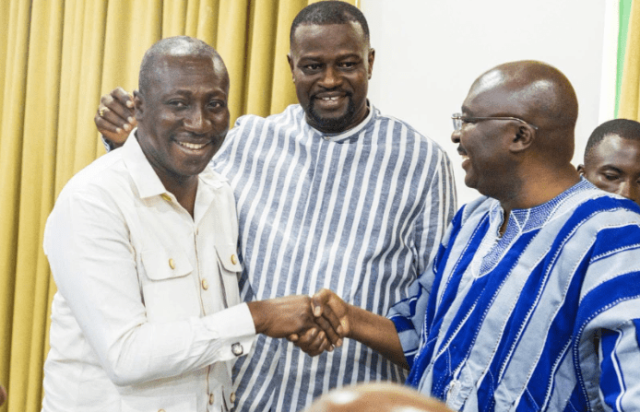The National Council of the New Patriotic Party (NPP) on, 2nd January, 2025 announced that Alexander Afenyo-Markin, Member of Parliament for Effutu, will serve as the Minority Leader for Ghana’s 9th Parliament. In light of this decision, 3news reached out to the Africa Leadership and Policy for Humanitarian Action (ALPHA) for their perspective on what this development could mean for the party and its broader parliamentary strategy.
Responding on behalf of ALPHA, the Director of Political Research and Strategy, Mr. Gideon Kwasi Annor, provided an incisive analysis. He remarked that the retention of Afenyo-Markin signals the party’s preference for continuity, stability, and strategic leadership during a critical phase in its political journey.
“Afenyo-Markin’s appointment reflects the NPP’s desire to build on existing parliamentary experience and avoid disruptions during this transition into minority status,” Mr. Annor noted. “His tenure as Majority Leader in the 8th Parliament has equipped him with the procedural expertise and strategic foresight needed to lead an effective opposition.”
ALPHA’s recent analysis of the leadership dynamics within the NPP highlighted Afenyo-Markin’s ability to navigate complex legislative terrains. His retention, Mr. Annor argued, provides the party with a steady hand to manage the intricacies of parliamentary opposition at a time of economic uncertainty and internal party recalibration.
One of the pressing challenges for the NPP caucus in opposition is maintaining unity amidst internal divisions. According to Mr. Annor, the decision to retain Afenyo-Markin reflects the party’s recognition of his perhaps, conciliatory leadership style and capacity to foster collaboration among parliamentary factions.
“Our research revealed that introducing a new leader might have risked exacerbating tensions within the caucus,” he explained. “By opting for Afenyo-Markin, the NPP intends to prioritize cohesion, which is critical for projecting strength and stability to its supporters and the electorate.”
The decision to retain Afenyo-Markin also reflects the NPP’s prioritisation of parliamentary experience over other skill sets. Mr. Annor elaborated, “While other contenders brought unique strengths—Kojo Oppong Nkrumah’s financial expertise and media savviness—Afenyo-Markin’s legislative proficiency and adaptability were deemed essential for this moment.”
ALPHA’s research posed critical questions about the qualities required for opposition leadership. Should the NPP favour someone with a solid background in finance and economics, legal expertise, media savviness, or infrastructure and social integration? “The retention of Afenyo-Markin suggests that the party values procedural expertise and parliamentary strategy as the cornerstone of its opposition agenda,” Mr. Annor explained.
Implications for the Party’s Future
Looking ahead, Mr. Annor emphasised that Afenyo-Markin’s leadership will be pivotal in shaping the NPP’s parliamentary and political trajectory. “As Minority Leader, his role extends beyond legislative strategy. He must effectively challenge government policies, present alternative solutions, and galvanise party unity,” he said.
Moreover, the success of Afenyo-Markin’s leadership could set the tone for the party’s broader strategy leading up to the 2028 general elections. “His ability to balance internal cohesion with public appeal will be critical in positioning the NPP as a viable alternative government,” Mr. Annor noted.
















